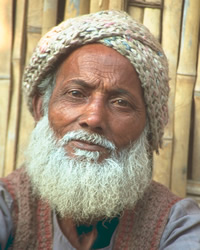South Asian, Bengali-speaking in Mauritius

Photo Source:
COMIBAM / Sepal
|
Send Joshua Project a map of this people group.
|
| People Name: | South Asian, Bengali-speaking |
| Country: | Mauritius |
| 10/40 Window: | No |
| Population: | 7,100 |
| World Population: | 5,981,400 |
| Primary Language: | Bengali |
| Primary Religion: | Islam |
| Christian Adherents: | 4.00 % |
| Evangelicals: | 0.00 % |
| Scripture: | Complete Bible |
| Ministry Resources: | Yes |
| Jesus Film: | Yes |
| Audio Recordings: | Yes |
| People Cluster: | South Asia Muslim - other |
| Affinity Bloc: | South Asian Peoples |
| Progress Level: |
|
Introduction / History
The Bengali people are the third largest ethnic group in the world behind the Han Chinese and Arabs. The homeland of the Bengalis is northeast India and Bangladesh. The Bangla language is the seventh most spoken language in the world. During the era of the British Empire, thousands of Bengali people left India and migrated to areas all over the world. Some have made their home in Mauritius. Mauritius is an island nation roughly 700 miles east of Madagascar in the Indian ocean. France took over the islands in the early 18th century and imported slaves from East Africa to work on sugar cane plantations. In 1810 the British seized the islands from the French. The British imported more slaves from Africa until 1835 when slavery was abolished in the British Empire. Indentured servants were then brought in from India to work on the plantations. The descendants of these Indians make up most of the Bengali speaking citizens in Mauritius today. Mauritius became an independent nation in 1968 and a republic in 1992. The standard of living of Mauritius is higher than other African nations. Mauritius was recently voted the least violent and most peaceful African nation. Mauritius is the only African country with Hinduism as the most practiced religion. Bengalis frequently speak Bangla at home, English and French at work and Mauritian Creole with their neighbors.
What Are Their Lives Like?
The Bengalis living in Mauritius often occupy what would be considered middle class status. A few are wealthy who own resorts, hotels and sugar cane plantations. Most Bengalis work at the resorts, as managers in sugar factories and as shop keepers and in trade. Many also are employed in medicine, education and government. The father is the head of the Bengali family. He shares leadership with his wife over the children. A woman has a higher place in the Bengali home than in most African cultures. Parents encourage their sons and daughters to excel in education and obtain college degrees. Bengalis in Mauritius try to maintain their ethnic identity. In traditional Bengali culture, the parents chose the spouse of their children. This practice has changed where young people frequently choose their life partner with their parents' guidance. Parents strongly encourage their sons and daughters to marry within Muslim Bengali people.
What Are Their Beliefs?
The large majority of the Bengalis in Mauritius practice Sunni Islam. A smaller group is Hindu. Muslims attempt to obey the teachings of the Koran and the prophet Muhammad. Sunnis believe that by following the Five Pillars of Islam that they will attain heaven when they die. However, Allah, the supreme God of the universe, determines who enters paradise. Sunnis pray five times a day facing Mecca. They fast the month of Ramadan. They attend mosque services on Friday. If a Muslim has the means, he or she will make a pilgrimage to Mecca once in his or her lifetime. Muslims are also prohibited from drinking alcohol, eating pork, gambling, stealing, using deceit, slandering, and making idols. The two main holidays for Sunni Muslims are Eid al Fitr, the breaking of the monthly fast and Eid al Adha, the celebration of Abraham's willingness to sacrifice his son to Allah. A tiny fraction of Bengalis in Mauritius are evangelical Christians.
What Are Their Needs?
The Bengali people living in Mauritius need to understand that Jesus or Isa is more than a Muslim prophet. He is their Savior and Lord. They also must see that gaining more wealth will not give them the joy and peace of mind that they seek.
Prayer Points
Pray for an opening of spiritual understanding among all Bengalis. Ask the Lord to lead Christians and churches in Mauritius to reach out and build friendships with the Bengalis. Pray that the small number of Bengali Christians will be a light for the other Bengali people. Ask the Holy Spirit to soften the hearts of the Bengalis Muslims and Hindus towards Christ so that they will be receptive to the gospel. Pray the Lord raises up a Disciple Making Movement among the Bengalis of Mauritius in this decade.